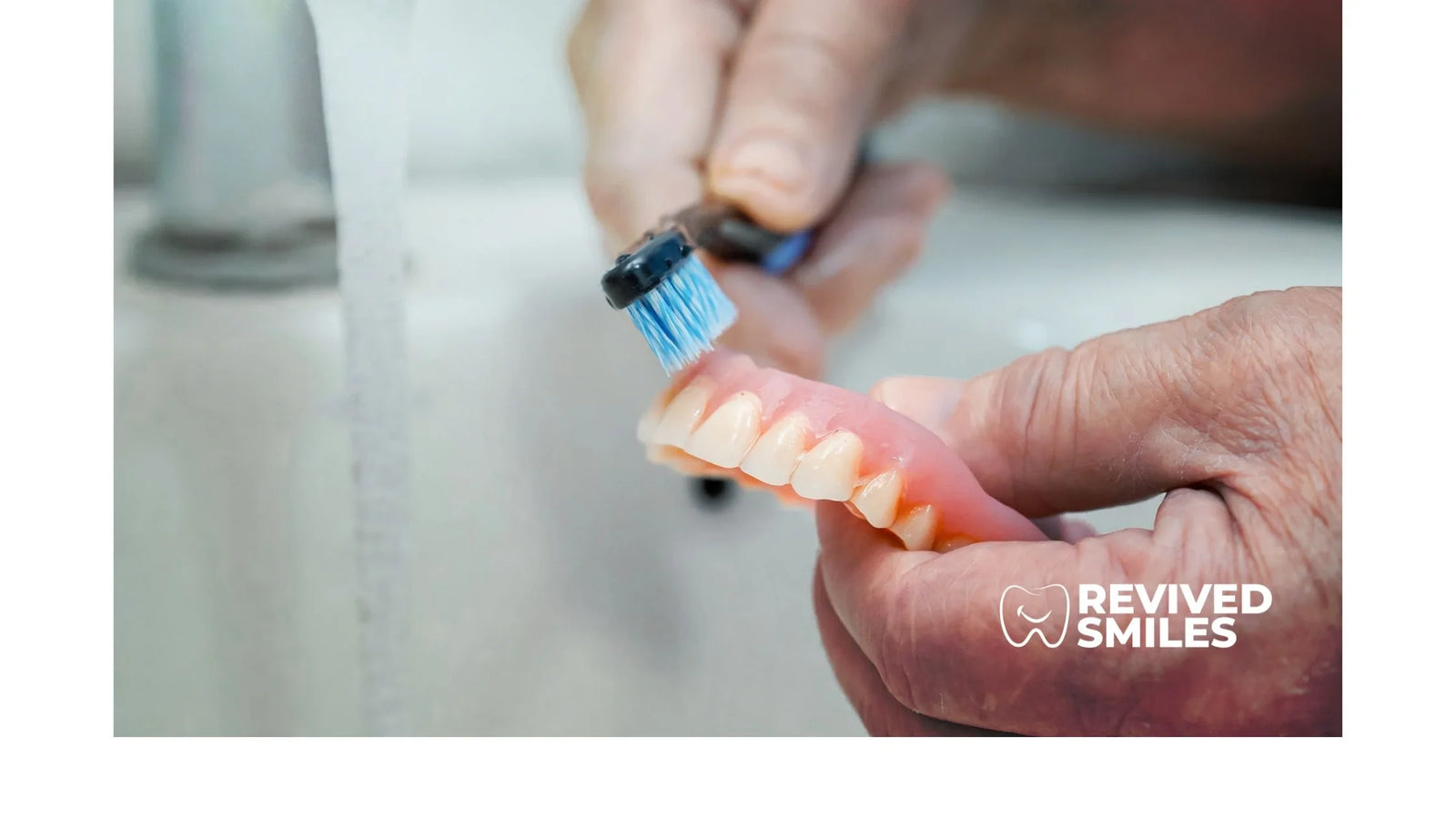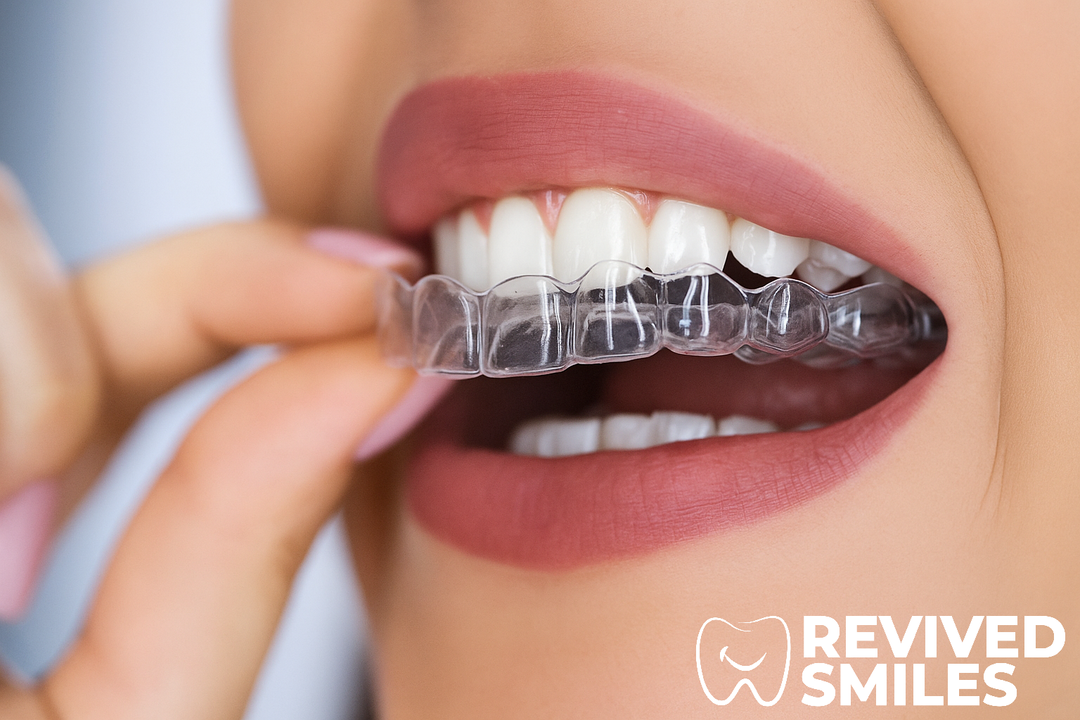Dentures Are Supposed to Last You 5-10 Years! Here's How To Do It!

If you’ve recently gotten dentures or are considering them, you might be wondering how long they’ll last and what you can do to keep them in great shape. Dentures are a significant investment in your oral health and appearance, so it’s essential to understand their lifespan and how to care for them properly. In this blog post, we’ll explore the average lifespan of dentures and provide tips on how to extend their longevity, ensuring your smile stays healthy and vibrant for years to come.
How Long Do Dentures Typically Last?
The Lifespan of Dentures:
- On average, dentures last anywhere from 5 to 10 years. However, this lifespan can vary depending on several factors, including the materials used, the quality of the dentures, and how well they are cared for.
Factors Influencing Denture Lifespan:
- Material Quality: Higher-quality materials, such as premium acrylics and metals, tend to last longer and offer better durability.
- Daily Wear and Tear: How often you wear your dentures and the types of foods you eat can affect their longevity. Hard or sticky foods can cause more wear and tear.
- Oral Health Changes: Over time, your mouth may change shape due to bone resorption or gum recession, which can affect how well your dentures fit. Poorly fitting dentures are more prone to damage and may need to be replaced sooner.
Tips for Proper Denture Care
Taking care of your dentures is crucial for extending their lifespan and maintaining your oral health. Here are some essential tips to help you keep your dentures in top condition:
1. Clean Your Dentures Daily
-
Why It’s Important: Just like natural teeth, dentures need to be cleaned daily to remove food particles, plaque, and bacteria. Neglecting to clean your dentures can lead to bad breath, infections, and faster deterioration of the denture material.
-
How to Clean:
- Remove your dentures and rinse them under lukewarm water to wash away loose debris.
- Use a soft-bristled toothbrush or a denture brush with a mild, non-abrasive denture cleaner to gently scrub all surfaces of the dentures.
- Avoid using regular toothpaste, as it can be too abrasive and cause microscopic scratches.
- Rinse thoroughly after cleaning to remove any remaining cleaner.
2. Soak Dentures Overnight
-
Why It’s Important: Soaking your dentures overnight helps keep them moist, which is essential for maintaining their shape and fit. It also helps to remove any stubborn stains or bacteria that brushing alone may not eliminate.
-
How to Soak:
- Place your dentures in a denture-soaking solution or plain water. Avoid using hot water, as it can cause the dentures to warp.
- Follow the manufacturer’s instructions on the soaking solution for the recommended time.
3. Handle with Care
-
Why It’s Important: Dentures can be fragile, especially if dropped or handled roughly. Taking care when handling your dentures can prevent cracks, chips, and other damage.
-
Tips for Handling:
- When removing or inserting your dentures, do so over a soft surface, such as a folded towel, to cushion any accidental drops.
- Hold your dentures securely by the base and avoid gripping them by the clasps, as this can cause them to bend or break.
4. Regular Dental Check-Ups
-
Why It’s Important: Regular dental visits are crucial for maintaining the fit and function of your dentures. Over time, your gums and bone structure may change, affecting how your dentures fit. A dentist can adjust or reline your dentures to ensure they remain comfortable and effective.
-
What to Expect:
- During a check-up, your dentist will examine your mouth for any signs of irritation or infection and assess the fit of your dentures.
- They may recommend adjustments, relining, or even a replacement if the dentures are too worn or no longer fit properly.
5. Avoid Hard and Sticky Foods
-
Why It’s Important: Hard and sticky foods can place excessive pressure on your dentures, leading to cracks, chips, or loosening of the dentures. Avoiding these types of foods can help extend the life of your dentures.
-
Diet Tips:
- Stick to softer foods that are easier to chew, such as cooked vegetables, pasta, and soft fruits.
- Cut harder foods, like apples or carrots, into smaller pieces to reduce the strain on your dentures.
- Avoid chewing gum, sticky candies, and tough meats, which can dislodge or damage your dentures.
Conclusion: Keep Your Dentures in Top Shape with Revived Smiles
Dentures can last for many years with the right care, but they’re not indestructible. By following these tips for proper care, you can extend the lifespan of your dentures and keep your smile looking great.
If you’re in need of new dentures or looking for a high-quality replacement, Revived Smiles offers dentist-quality dental appliances designed to meet your specific needs. Our dentures are made from premium materials and crafted with precision to ensure durability, comfort, and a natural appearance.
Visit Revived Smiles today to explore our range of dentures and take the first step toward maintaining a healthy, confident smile.





Fantastic article on dental care! Your tips for maintaining oral health and the importance of regular check-ups are spot on. It’s great to see such valuable advice on preventing common issues and choosing the right dentist. Your insights are incredibly helpful for anyone looking to improve their dental hygiene.
Fantastic post about dental health! Your tips on maintaining a good oral hygiene routine and the importance of regular check-ups are spot on. It’s great to see such clear advice on preventing common issues. For anyone seeking dental care tips, this is a must-read. Thanks for the valuable information!
To ensure your dentures last 5-10 years, maintain them with regular cleanings and proper storage. Avoid hard foods and sticky substances that can damage them. Schedule routine check-ups with your dentist for adjustments and to address any issues early. With care and attention, your dentures can serve you well for years.
Leave a comment